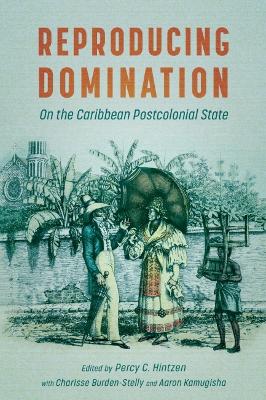Caribbean Studies
1 total work
Reproducing Domination
Published 15 December 2022
Reproducing Domination: On the Caribbean Postcolonial State collects thirteen key essays on the Caribbean by Percy C. Hintzen, the foremost political sociologist in Anglophone Caribbean studies. For the past thirty years, Hintzen has been one of the most articulate and discerning critics of the postcolonial state in Caribbean scholarship, making seminal contributions to the study of Caribbean politics, sociology, political economy, and diaspora studies. His work on the postcolonial elites in the region, first given full articulation in his book The Costs of Regime Survival: Racial Mobilization, Elite Domination, and Control of the State in Guyana and Trinidad, is unparalleled.
Reproducing Domination contains some of Hintzen’s most important Caribbean essays over a twenty-five-year period, from 1995 to the present. These works have broadened and deepened his earlier work in The Costs of Regime Survival to encompass the entire Anglophone Caribbean; interrogated the formation and consolidation of the postcolonial Anglophone Caribbean state; and theorized the role of race and ethnicity in Anglophone Caribbean politics. Given the recent global resurgence of interest in elite ownership patterns and their relationship to power and governance, Hintzen’s work assumes even more resonance beyond the shores of the Caribbean. This groundbreaking volume serves as an important guide for those concerned with tracing the consolidation of power in the new elite that emerged following flag independence in the 1960s.
Reproducing Domination contains some of Hintzen’s most important Caribbean essays over a twenty-five-year period, from 1995 to the present. These works have broadened and deepened his earlier work in The Costs of Regime Survival to encompass the entire Anglophone Caribbean; interrogated the formation and consolidation of the postcolonial Anglophone Caribbean state; and theorized the role of race and ethnicity in Anglophone Caribbean politics. Given the recent global resurgence of interest in elite ownership patterns and their relationship to power and governance, Hintzen’s work assumes even more resonance beyond the shores of the Caribbean. This groundbreaking volume serves as an important guide for those concerned with tracing the consolidation of power in the new elite that emerged following flag independence in the 1960s.
